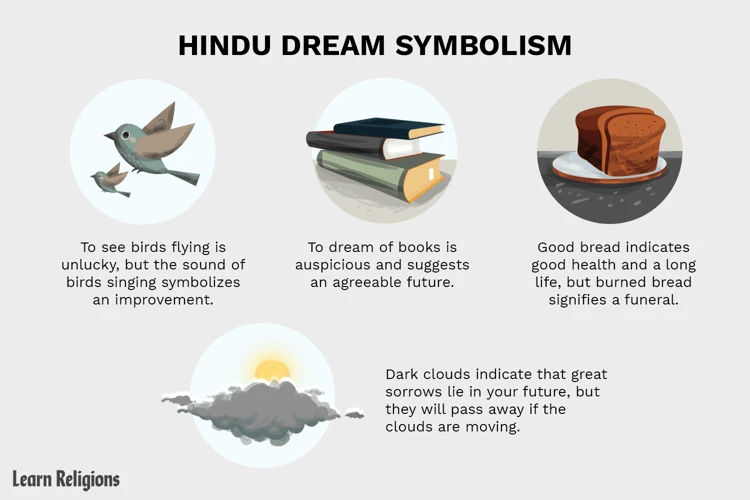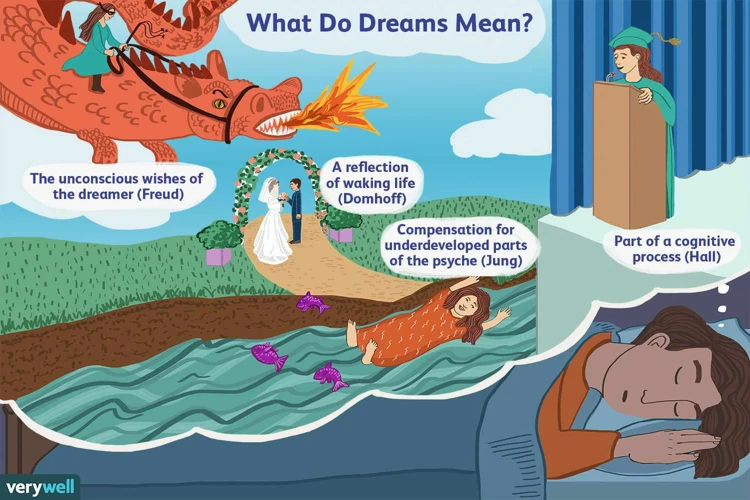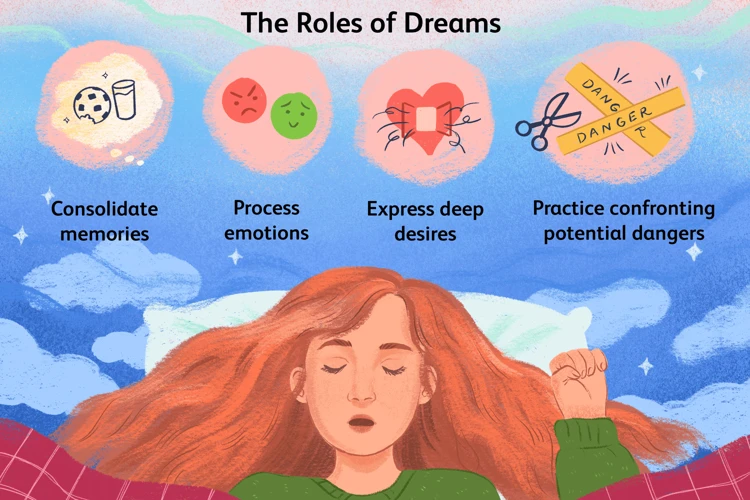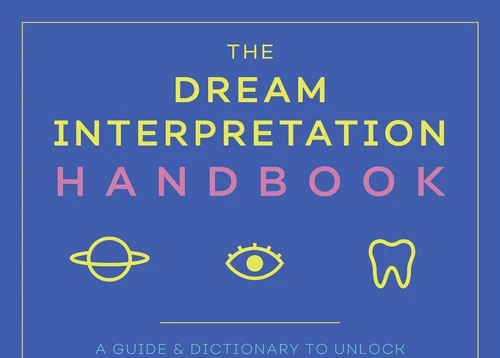Unlocking the Meaning of Common Dream Symbols: A Comprehensive Guide
Have you ever woken up from a dream and wondered what it all meant? Dreams have long fascinated and perplexed us, as they hold a hidden world of symbolism and meaning. Understanding the messages that our dreams convey can provide valuable insights into our subconscious thoughts, emotions, and desires. In this article, we will delve into the importance of dream symbols and explore the interpretations behind some of the most common ones that people experience. Whether you’re soaring through the sky, falling uncontrollably, or finding yourself naked in public, we’ll unravel the mysteries behind these dream symbols and explain what they might be trying to tell you. So, grab your dream journal and let’s embark on a journey of self-discovery through the intricate world of dreams.
The Importance of Dream Symbols

Dream symbols play a crucial role in unraveling the mysteries of our subconscious mind. They serve as a language through which our inner thoughts, fears, and desires are expressed. Understanding the importance of dream symbols allows us to gain valuable insights into our lives and can aid in personal growth and self-discovery. While dreams may seem random and nonsensical on the surface, every symbol carries a deeper meaning that is unique to the individual. By analyzing and interpreting these symbols, we can uncover hidden truths and gain a deeper understanding of ourselves. For example, dreaming of a Son you don’t have can represent potential or unfulfilled ambitions, while a dream of a snake shedding its skin can signify transformation and rebirth. Exploring these symbols opens the door to self-reflection and can provide guidance and inspiration in various aspects of our lives.
Common Dream Symbols and Their Interpretations

Common Dream Symbols and Their Interpretations
1. Flying: Dreaming of flying often represents a sense of freedom and liberation. It can symbolize breaking free from constraints and taking control over one’s life. This dream may signify a desire for independence or a need to escape from a challenging situation.
2. Falling: Falling in a dream can evoke feelings of fear and vulnerability. It often reflects a lack of control or insecurity in waking life. This dream may indicate a sense of being overwhelmed or a fear of failure and the need to regain balance and stability.
3. Teeth Falling Out: Dreams about teeth falling out can be unsettling but are common. Symbolically, losing teeth can represent concerns about appearance, communication, or power. It may suggest a loss of confidence or a need to address unresolved issues.
4. Being Chased: Being chased in a dream often signifies avoidance or running away from something in waking life. It may represent unresolved fears, anxieties, or problems that need to be confronted. This dream can offer insight into the need to confront and overcome challenges.
5. Being Naked in Public: Dreaming of being naked in public can reflect feelings of vulnerability and embarrassment. It may indicate a fear of being exposed or judged. This dream can symbolize a need for acceptance and authenticity in one’s relationships and interactions.
6. Death: Dreams of death are not necessarily about literal death but rather represent psychological transformation and change. They may symbolize the end of a particular phase or the need to let go of old habits or beliefs. This dream often signifies rebirth and new beginnings.
7. Water: Water in dreams often represents emotions, intuition, and the subconscious mind. The state of the water (calm, turbulent, or stagnant) and its surroundings provide additional insight into emotional states. Pay attention to the context and your feelings towards water for a more accurate interpretation.
8. Snakes: Snakes in dreams can evoke both fear and intrigue. They are often associated with transformation, healing, and enlightenment. The presence of a snake may indicate a need for change or a warning of potential threats. Reflect on your personal associations and context for a clearer understanding.
9. Lost or Forgotten Items: Dreams of losing or forgetting items can symbolize a sense of loss, forgetfulness, or a fear of losing control. It may suggest a need to reevaluate priorities or to pay attention to overlooked aspects of life. Consider the significance of the lost item for a more personalized interpretation.
10. Exam or Test: Dreams of taking exams or tests often reflect feelings of stress, self-doubt, or a need for validation. They can represent a fear of failure or a desire to prove oneself. Pay attention to the specific circumstances and emotions surrounding the exam for a deeper understanding.
Understanding these common dream symbols and their interpretations can provide valuable insights into our subconscious thoughts, emotions, and desires. While these interpretations provide a general understanding, it is important to remember that dreams are highly personal and can have unique meanings for each individual. Exploring the symbolism in your dreams can lead to greater self-awareness and personal growth. For more information on dream interpretation, check out our article on Unlocking the Secrets of Dreams.
1. Flying
Flying is a common dream symbol that often represents a sense of freedom, liberation, and transcendence. When we dream of flying, it can signify our desire to break free from limitations or to escape from a challenging situation in our waking life. This symbol is often associated with feelings of joy, empowerment, and the ability to rise above obstacles. However, the interpretation of flying dreams can vary depending on the context and personal experiences of the individual. For some, it may symbolize a need for control or a fear of losing control, while for others, it may indicate a desire for exploration and adventure. Soaring through the skies in our dreams can serve as a reminder to embrace our inner strength and strive for personal growth and fulfillment. To explore more about the significance of dreams, you can visit our article on dreaming of a son you don’t have.
2. Falling
Falling is a common dream symbol that can evoke strong emotions and leave us feeling uneasy upon waking. This symbol often represents a loss of control or a sense of insecurity in one’s life. It may reflect a fear of failure, a lack of confidence, or a sense of being overwhelmed by life’s challenges. However, the interpretation of falling in a dream can vary depending on the context and personal experiences of the dreamer. For some, it may symbolize a need to let go and trust in the process of life, while for others, it could indicate a need to regain stability and find solid ground. Exploring the underlying emotions and personal associations with the falling symbol can provide valuable insights into what it may represent in a specific dream. Understanding the meaning behind the falling symbol can help address any underlying fears or insecurities and empower individuals to navigate life’s challenges with confidence and resilience. For more information on dream symbols, visit our article on dream of snake shedding skin.
3. Teeth Falling Out
Teeth falling out is a common dream symbol that often leaves us feeling perplexed and unsettled. This symbol can hold a variety of interpretations and meanings, depending on the individual and their personal experiences. In some cases, dreaming of teeth falling out may signify a fear of losing control or power in a particular area of life. It could also represent insecurities or concerns about appearance, communication, or self-expression. Alternatively, this dream symbol may indicate a desire for renewal and transformation, as losing teeth is associated with growth and change. Exploring the emotions and circumstances surrounding the dream can provide further insight into its specific meaning for the dreamer.
4. Being Chased
Being chased is a common dream symbol that can evoke a strong sense of fear and anxiety. This type of dream often reflects feelings of being pursued or overwhelmed in waking life. When we dream of being chased, it may symbolize a situation or problem from which we are trying to escape. It could be a representation of unresolved conflicts, stress, or a sense of being overwhelmed by responsibilities. To interpret this dream symbol, it is important to consider the context and emotions associated with the chase. Are you able to escape, or do you feel trapped? Identifying who or what is doing the chasing can provide further insights into the specific factors causing the dream. Exploring these emotions and analyzing the underlying causes can help us find ways to address and overcome challenges in our waking lives.
5. Being Naked in Public
Being naked in public is a commonly reported dream symbol that can evoke feelings of vulnerability and embarrassment. This dream often reflects a fear of exposure or a sense of insecurity in one’s personal or professional life. It may indicate a fear of being judged or criticized by others. Alternatively, this dream could also suggest a desire for authenticity and a need to embrace one’s true self. The context and emotions experienced during the dream are essential in interpreting its meaning. For some individuals, being naked in public may trigger a sense of liberation and confidence, signifying a willingness to let go of societal expectations and be true to oneself. However, for others, this dream can create anxiety and discomfort, highlighting unresolved issues related to self-image and acceptance. Exploring the underlying emotions and considering personal associations can help unlock the specific significance of this dream symbol in an individual’s life.
6. Death
– Death is a powerful and often unsettling dream symbol that can evoke a range of emotions. While it may seem ominous, dreaming of death is often not a literal representation of someone’s demise. Instead, it signifies the ending of a particular phase or aspect of your life. It can symbolize the shedding of old habits, beliefs, or relationships, making way for new beginnings and personal growth. This dream may be urging you to let go of the past and embrace change. Alternatively, it could represent a fear of change or a sense of loss. Analyzing the emotions and circumstances surrounding the dream can provide deeper insights into its meaning. Remember, dreams of death are rarely prophetic and should be viewed as symbolic rather than literal. It is important to approach these dreams with curiosity and explore the underlying messages they hold.
7. Water
Water is a powerful and common dream symbol that holds multiple interpretations depending on its context. It represents the depths of our emotions and the fluidity of our subconscious mind. Dreaming of water can symbolize the ebb and flow of our emotions, our ability to adapt to different situations, and our need for emotional nourishment. Crystal clear water may indicate clarity and a sense of calm, while turbulent or murky water could signify unresolved emotions or confusion. Diving into water may symbolize a deep exploration of our own psyche, while drowning or being overwhelmed by water can represent feelings of being overwhelmed or out of control in our waking lives. Exploring the symbol of water in our dreams can help us gain a deeper understanding of our emotional state and guide us towards finding balance and emotional well-being in our daily lives.
8. Snakes
8. Snakes
Snakes are one of the most fascinating and complex dream symbols. They can evoke a range of emotions, from fear to intrigue, and their interpretation can vary based on personal experiences and cultural beliefs. In dreams, snakes often represent transformation, healing, and renewal. They are powerful symbols of wisdom and spiritual growth. Seeing a snake in your dream may indicate that change is on the horizon, and you need to embrace it rather than fear it. It can also signify the shedding of old habits or outdated beliefs, allowing you to evolve and grow as an individual. However, it’s important to note that the meaning of a snake dream can differ from person to person. For some, snakes may represent danger or deceit, while for others, they may symbolize sexuality or hidden desires. Understanding the context and your personal associations with snakes is key to unlocking their true meaning in your dreams.
9. Lost or Forgotten Items
Dreams involving lost or forgotten items can hold significant meaning and symbolism. When you find yourself dreaming about misplaced possessions or items that you can’t seem to locate, it may be a reflection of something important that you feel is missing in your waking life. These dreams often signify feelings of loss, disconnection, or a sense of not being able to find something that is essential to you. It could represent a lost opportunity, a forgotten aspect of yourself, or even a subconscious desire to regain control over something you feel has slipped away. Exploring the details of the dream, such as the type of item or the emotions associated with the loss, can provide further insight into what this symbolism represents for you personally. By reflecting on these dreams and contemplating the potential lessons they offer, you can gain a better understanding of what you may need to seek or reclaim in your waking life to feel more fulfilled and complete.
10. Exam or Test
Dreaming of taking an exam or test is a common dream symbol that often evokes feelings of stress and anxiety. This symbol can reflect our fears of inadequacy, performance anxiety,
Subscribe to Our Newsletter
Sign up to receive the latest news and updates.
Additional Factors to Consider

In addition to analyzing individual dream symbols, there are several additional factors to consider when interpreting the meaning of our dreams. These factors can provide context and depth to our interpretations, allowing us to gain a more thorough understanding of our subconscious messages. Firstly, personal associations play a significant role in dream analysis. Symbols may hold different meanings for each individual based on their personal experiences, memories, and emotions. Secondly, considering the cultural and historical context of a symbol can provide valuable insights. Symbols can carry different meanings across cultures and throughout history, so understanding these nuances can contribute to more accurate interpretations. Lastly, the emotional state in which a dream occurs can influence the symbolism. Emotions such as fear, joy, or sadness can add layers of meaning to the symbols present in the dream. Taking these additional factors into account can enrich our understanding of dream symbols and help us unlock the deeper meaning behind our dreams.
1. Personal Associations
Personal associations are a key factor in interpreting dream symbols. Each individual has their own unique set of experiences, memories, and emotions that shape their interpretation of symbols. When analyzing a dream symbol, it is important to consider the personal significance it holds for the dreamer. For example, while water may symbolize cleansing and renewal in general, it could hold different meanings for different people. For one person, it may evoke feelings of relaxation and tranquility, while for another, it may trigger memories of a traumatic event. By tapping into our own personal associations, we can unlock a deeper understanding of the symbols presented in our dreams and how they relate to our own life experiences. Taking the time to reflect on these associations can provide valuable insights into our subconscious mind.
2. Cultural and Historical Context
Understanding dream symbols goes beyond personal experiences and associations. The cultural and historical context in which we live can greatly influence the interpretation of dream symbols. Different cultures have unique beliefs, symbolism, and mythologies that shape the way dreams are perceived. For example, in Western cultures, the owl is often associated with wisdom and knowledge, while in some Indigenous cultures, it may represent a messenger from the spirit world. Similarly, historical events or societal beliefs can also impact dream symbolism. For instance, dreaming about a tower collapsing could symbolize a fear of societal or personal collapse, influenced by historical events such as the 9/11 attacks. By considering the cultural and historical context, we can gain a more comprehensive understanding of the meanings behind dream symbols and their relevance to our lives.
3. Emotional States
Emotional states play a significant role in the interpretation of dream symbols. Our dreams often reflect our current emotional state or the emotions that we may be suppressing or struggling with. For instance, if you experience a dream filled with fear and anxiety, it may indicate underlying stress or a sense of insecurity in your waking life. On the other hand, dreams characterized by joy and excitement can represent happiness and fulfillment. Recognizing and acknowledging the emotions felt during a dream can provide valuable insight into our psychological well-being and help to uncover unresolved issues or areas of personal growth. By exploring the emotional context of our dreams, we can better understand and address our own needs and desires.
Interpreting Dream Symbols in Your Life
Interpreting dream symbols is a deeply personal and introspective process that can provide profound insights into our lives. While there are general interpretations for common symbols, it is essential to consider their meaning within the context of our own experiences and emotions. One powerful approach is to journal and reflect upon our dreams, allowing us to identify recurring symbols and patterns. Consulting with a dream analyst or therapist can offer guidance and expertise in interpreting the symbols and uncovering their significance. Additionally, meditating on dream symbols can help us connect with our subconscious mind and gain deeper insights into their meaning. Ultimately, interpreting dream symbols requires seeking personal insight and reflecting on how they relate to our unique circumstances and emotions. By embracing the symbolism in our dreams, we can unlock a wealth of knowledge that can guide us on our journey of self-discovery and personal growth.
1. Journaling and Reflection
1. Journaling and Reflection:
One powerful way to interpret dream symbols is through journaling and reflection. Keeping a dream journal allows you to record and analyze your dreams on a regular basis. Set aside some time each morning to write down the details of your dream, including any prominent symbols or emotions you experienced. Reflecting on these entries can help you uncover patterns, recurring symbols, and their possible meanings. Dive deep into your thoughts and feelings surrounding the dream and try to make connections to events or emotions in your waking life. Use the journal as a tool for self-exploration and self-discovery, allowing your subconscious to communicate with your conscious mind. By recognizing patterns and exploring the symbolism within your dreams, you can gain valuable insights into yourself and your circumstances.
2. Consulting with a Dream Analyst or Therapist
2. Consulting with a Dream Analyst or Therapist
When it comes to understanding the complex world of dream symbols, seeking guidance from a dream analyst or therapist can be highly beneficial. These professionals are trained to interpret dreams and help individuals explore the deeper meanings behind their dream symbols. By discussing your dreams with an expert, you can gain valuable insights and uncover patterns or connections that may not be immediately apparent. Dream analysts and therapists can provide an objective perspective and offer interpretations that resonate with your personal experiences and emotions. Their expertise can help you navigate through the symbolism and provide clarity and understanding. Through their guidance, you can gain a deeper understanding of yourself and your dreams, leading to personal growth and self-awareness.
3. Meditating on Symbols
Meditating on dream symbols is a powerful practice that allows us to delve deeper into their meanings. By bringing our attention and focus to a specific symbol, we can connect with our intuition and gain valuable insights. To meditate on dream symbols, find a quiet and comfortable space where you can relax. Close your eyes and visualize the symbol in your mind’s eye. Allow the symbol to come alive and explore its details, colors, and sensations. Stay open and receptive to any thoughts, feelings, or messages that arise during this meditation. Take note of any new perspectives or understandings that emerge. This practice can help us tap into our subconscious wisdom and unlock the hidden meanings behind our dream symbols. So, take some time to sit in stillness and let the symbols speak to you, guiding you towards greater self-awareness and personal growth.
4. Seeking Personal Insight
Seeking personal insight is a crucial step in interpreting dream symbols and understanding their significance. It involves deep introspection and reflection to uncover the hidden meanings behind the symbols that appear in our dreams. To gain personal insight, it is helpful to ask ourselves probing questions about the emotions and experiences connected to the dream. What do these symbols represent to us on a personal level? How do they relate to our current life circumstances? Exploring these questions can lead to valuable self-discovery and insights that resonate with our own unique experiences. By delving into our own thoughts and emotions, we can unlock the true meaning of the dream symbols and apply them to our lives in a meaningful way. This process of seeking personal insight allows us to gain a deeper understanding of ourselves and can ultimately lead to personal growth and transformation.
Conclusion
In conclusion, dream symbols hold profound meaning and significance in our lives. They serve as a bridge between our conscious and subconscious minds, allowing us to tap into a realm of hidden thoughts and emotions. By unlocking the meanings behind common dream symbols, we gain a deeper understanding of ourselves and the challenges and opportunities that lie ahead. While interpretations may vary based on personal experiences and cultural contexts, the exploration of dream symbols provides a valuable tool for self-reflection, personal growth, and insight. So, the next time you wake up from a vivid dream, take a moment to ponder the symbols within it. Who knows what hidden truths and messages your dreams may hold? Embrace the enigmatic world of dreams and let them guide you on a journey of self-discovery.
Frequently Asked Questions
1. Can dreams predict the future?
While some people believe that dreams can offer glimpses into the future, there is no scientific evidence to support this claim. Dreams are more often influenced by our past experiences, current thoughts, and emotions.
2. Why do we forget our dreams?
Forgetting dreams is a common occurrence due to the nature of memory consolidation during sleep. Dreams are typically stored in short-term memory, and if not actively reinforced or recalled upon waking, they can easily fade away.
3. Can dreams be influenced by external factors?
Yes, external factors such as noise, temperature, or the presence of certain scents can influence our dreams. These external stimuli may find their way into our dreams and shape their content.
4. Are recurring dreams significant?
Recurring dreams can hold significant meaning as they often represent unresolved emotions or patterns in our lives. Paying attention to these dreams can provide valuable insights into areas of our life that may require attention or resolution.
5. Why do we sometimes lucid dream?
Lucid dreaming occurs when you become aware that you are dreaming while in the dream state. It can happen spontaneously or with intentional practice. Lucid dreaming offers opportunities for self-exploration, creativity, and even problem-solving.
6. Can nightmares be helpful?
While nightmares can be distressing, they can also serve as a means of processing and resolving fears and anxieties. Nightmares can highlight areas in our lives that need attention and can be catalysts for personal growth and transformation.
7. Do dream symbols have universal meanings?
Dream symbols can have both universal and personal meanings. While some symbols may have universal associations, such as water representing emotions, the personal context and individual experiences of the dreamer play a significant role in interpreting dream symbols.
8. Can dream symbols change over time?
Yes, dream symbols can evolve and change in meaning over time. As we grow, our perspectives and life experiences evolve, which can lead to shifts in the symbolism and significance of certain dream elements.
9. Can certain medications affect our dreams?
Yes, certain medications can influence the content and intensity of our dreams. Medications like antidepressants, sleep aids, and even some over-the-counter drugs can impact the vividness and recall of dreams.
10. Is it possible to control what we dream about?
While we cannot have full control over the specific content of our dreams, there are techniques like dream incubation and visualization exercises that can improve the likelihood of dreaming about certain themes or ideas.










